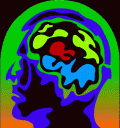Design for Learnability – Please!
 One goal of cognitive design is to create artifacts (products, services, workflows, programs, events, etc.) that enhance mental processes such as perception, recall, learning, decision-making and even creativity. The idea is to craft the features and functions of the artifact based on the latest cognitive science and best evidence from practice to measurably improve the mental process of interest. Important stuff in a complex, knowledge-intensive minutes matter kind of world.
One goal of cognitive design is to create artifacts (products, services, workflows, programs, events, etc.) that enhance mental processes such as perception, recall, learning, decision-making and even creativity. The idea is to craft the features and functions of the artifact based on the latest cognitive science and best evidence from practice to measurably improve the mental process of interest. Important stuff in a complex, knowledge-intensive minutes matter kind of world.
So cognitive designers are always on the lookout for resources that describe the nature of cognition (how we think and feel) with authority and in enough detail to inform the selection of specific features and functions.
 For example, there is an urgent need to improve our designs to make them more learnable. This includes not only artifacts designed to teach (e.g. courses) but every artifact that requires some learning for use. Who wants to waste precious mental energy learning how to use something or sitting in a lecture hall when they are not designed for how we learn, think and feel?
For example, there is an urgent need to improve our designs to make them more learnable. This includes not only artifacts designed to teach (e.g. courses) but every artifact that requires some learning for use. Who wants to waste precious mental energy learning how to use something or sitting in a lecture hall when they are not designed for how we learn, think and feel?
Recently, I found a blog by Bill Brantley, Designing Knowledge, that appears to be a good source of sources on designing for learnability – or understanding cognition so that we can design more effective training and teaching materials.
 One example, his review of Ruth Clark’s new 500-page book on Building Expertise: Cognitive Methods for Training and Performance Improvement. The goal of the book to review what we know about the cognitive science of expertise and use it to build more effective learning environments. She looks at key issue in cognitive design such as working memory, self-regulation, cognitive load, mental models and motivation. All from an evidence-based point of view. I am not done with my review yet but it looks to be a treasure trove for the cognitive designer.
One example, his review of Ruth Clark’s new 500-page book on Building Expertise: Cognitive Methods for Training and Performance Improvement. The goal of the book to review what we know about the cognitive science of expertise and use it to build more effective learning environments. She looks at key issue in cognitive design such as working memory, self-regulation, cognitive load, mental models and motivation. All from an evidence-based point of view. I am not done with my review yet but it looks to be a treasure trove for the cognitive designer.
There are many other interesting post as well, for example, this link to a Google Knol on Cognition, Learning and Affect that contains a great overview of the role of emotions in learning. Check it out and share what you learn.